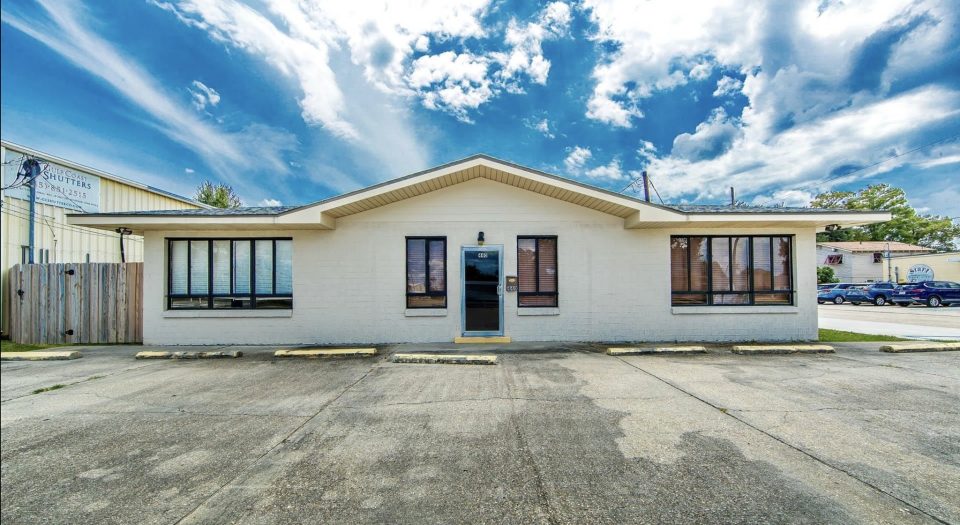
Automobile market down, but locals optimistic
October 25, 2016
TRMC Wellness Center set for opening
October 26, 2016Members of a state legislative committee – including two Bayou Region representatives – took statements from and posed questions to witnesses last week, in connection with Gov. John Bel Edwards’ forward push for lawsuits against oil companies for damages suffered by the coast similar to those already pending in some Louisiana parishes.
During its day-long hearing Thursday the House Natural Resources Committee heard local voices as well. Matthew Block, the Thibodaux attorney who serves as the governor’s special counsel, answered occasionally hostile queries from decidedly pro-industry politicians who sit on the committee. Chett Chiasson, director of Port Fourchon, which depends on oil and gas activity in the Gulf of Mexico, was among witnesses making the case for alternative handling of the matter.
Terrebonne Parish President Gordon Dove and Lafourche Parish President Jimmy Cantrelle have both rejected invitations from Edwards to file suit on behalf of their own parishes. Dove had attended the hearing and planned to testify but had to leave due to a pending Parish Council meeting.
Even if individual parishes do not follow the path taken by Jefferson, Plaquemines and others by filing individual suits, the state’s Department of Natural Resources plans to bring lawsuits in the judicial districts of affected parishes on its own. The purpose of the hearing was for members of the committee to be updated as to where the state is in the process.
At issue is alleged violation of coastal zone permits by oil companies going back nearly 40 years, through failure by companies to close up canals they cut, or to remove materials that eroded marshlands used during the extraction of oil and gas or exploration to determine their presence.
The suit filed by Jefferson Parish is currently the subject of an appeal, following a judge’s determination that state law requires administrative remedies to be pursued before attempts for relief in the courts. Attorneys for the state, including Block, disagree with that finding under the fact-set they are working with.
At the hearing, DNR Secretary Tom Harris said the suits are needed – and justified – because “normal methods of enforcement would not be effective due to the sheer volume.”
The state’s decision to sue is not a condemnation of the oil and gas industry as a whole, Harris said, but rather a necessity brought on by the difficulty of levying fines on a case-by-case basis.
In some cases, Harris and other DNR officials said, required permits were never filed for, further confounding administrative potentials for relief.
One point that became very clear during the course of the haring was DNR’s own failure over decades to monitor oil and gas industry practices, or to take action against oil companies if violations were alleged. Some committee members questioned whether DNR was itself a culprit.
Rep. Ray Garofalo R-Chalmette was among committee members making the case through questions and statements that the state was treading on dangerous ground, risking the loss of what remains of the oil and gas industry if the suits are pursued. “The oil companies don’t need Louisiana anymore with fracking,” Garofalo said, referencing the hydraulic fracturing technique that have allowed oil companies to seek product from inland locations.
“Politically none of this makes sense to me,” Garofalo said. “It’s almost like we set up the oil companies to fail, set up the oil companies to be sued.”
Block countered tough questions form Garofalo and other representatives by suggesting that merely because the state had been soft on oil companies in the past, that should not wipe the slate clean of the industry’s environmental and regulatory sins.
The passage of time and past acquiescence, Block said, “should not eliminate the responsibility of (DNR) to o something about it now … I don’t accept that somehow because of the price of oil and the condition of the oil and gas industry the Governor should ignore the responsibility he has to make sure the law is followed, that we are going to wait for the price of oil to recover.”
One local voice – Rep. Jerome Zeringue R-Houma – had a tone during the proceedings that differed from that of his colleagues. While most committee members who spoke appeared to discount the oil industry’s role in the loss of Louisiana’s coast, Zeringue acknowledged it. His questions were centered on whether the lawsuit route was desirable, given the number of additional factors that have also contributed. Chief among them was the US Army Corps of Engineers role in damming and diverting the Mississippi River after passage of the Flood Control Act of 1928.
As former head of the Coastal Protection and Restoration Authority, Zeringue has an acknowledged amount of expertise on coastal issues.
Zeingue repeatedly asserted that he was not trying to indicate that oil companies do not have a liability. But he sought assurances that state officials would pursue with equal vigor other culprits including the federal government, for the roles they have played.
“If we are going to do this let’s do it right and engage the most egregious culprit and that is the federal government, the Corps of Engineers,” Zeringue said in an interview subsequent to the hearing. “Our economy is based on oil and gas and there is no doubt that exploration of oil and gas has had an impact. My experience in dealing with the causes and issues and how and how we are going to address this, is that if we are going to have long term solutions it is going to require the support of our federal partners.”
The whole nation, Zeringue noted, benefits from the decisions that have resulted in degradation of Louisiana’s coast, and that therefore the whole nation has a responsibility to assist with mitigation. He dismisses notions that the federal government cannot be sued for negative effects its flood-control efforts have created, and notes that a case brought by the CPRA is currently making its way through the appeals process.
He and other participants in the discussion acknowledged an issue that became clear during the hearing, that the ultimate strategy may well be for the oil companies – in terms of their areas of responsibility – to be brought to the negotiation table by way of the suits, something they do not seem anxious to do of their own volition, especially with litigation from some parishes already pending.
“Those are the delicate balances we are trying to make,” Block said at one point in the hearings. “If we are going to move forward we need to have every (coastal) parish involved so that we can develop the data we are going to need, how it occurred, what it would take to restore it in each of these parishes. We have to have some mechanism involved.”
That, as some legislators pointed out, is going to be a hard sell in Terrebonne and Lafourche, both of whose leaders have made clear that they don’t want their relationships with the oil and gas industry compromised.
Rep. Gerry “Truck” Gisclair R-Cut Off questioned whether the lawsuit process was the best way to proceed, also echoing Zeringue’s concerns that if liability is to be assigned, it must be assigned fairly.
With most legislators making clear their alliances with oil and gas, and Zeringue taking a more circumspect approach, acknowledging the oil and gas industry’s responsibility while seeking a balance in determining fault for coastal issues, one committee member was not shy about pointing an accusing finger.
Rep. Patrick Connick R-Marrero said there is no doubt the oil and gas industry “does great things for the state of Louisiana and does great things for our economy and our people.”
“But the oil and gas industry has a huge influence on the legislature and on governor’s offices and everybody,” Connick said. “Just look at the pushback from this committee in its discussion of trying to cure the coasts’ problems. It makes sense that they are going to say protect my industry. That’s not an ethics violation. I think most of the oil companies have already left and gone to Texas. The big corporations are based in other states and why is that? Because of what we have done in the past as a state, enforcing some rules and not enforcing others.
Discussion of who bears responsibility for damage to Louisiana’s coast has included the roles played by oyster harvesters, timber interests, cane farmers and the release of nutria into the Louisiana wild. The latter provided a moment of comic respite injected by Zeringue.
“Nutria can’t be sued,” Zeringue said. “There might be rats in the litigation process. We know that nutria are a cross between a muskrat and an otter and they didn’t get on a boat to escape carnivorous oppression in South America.”











